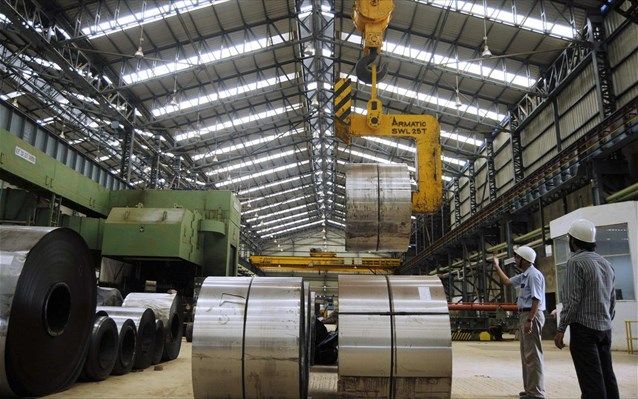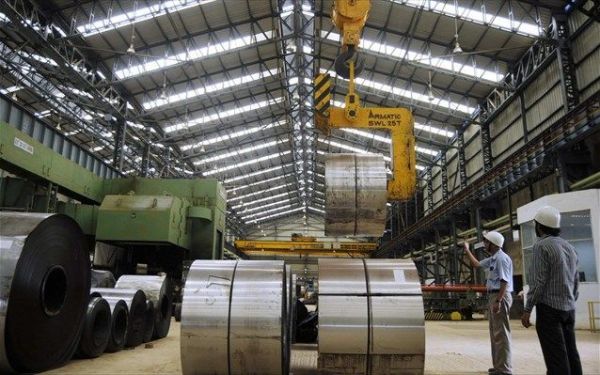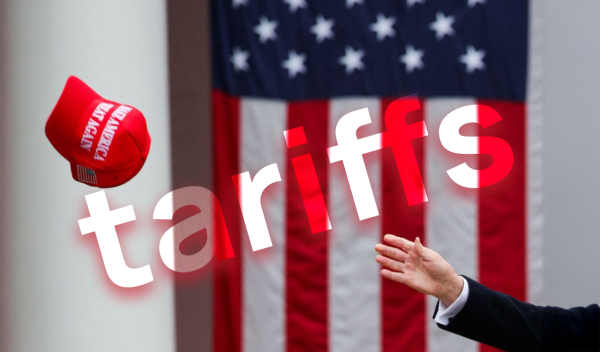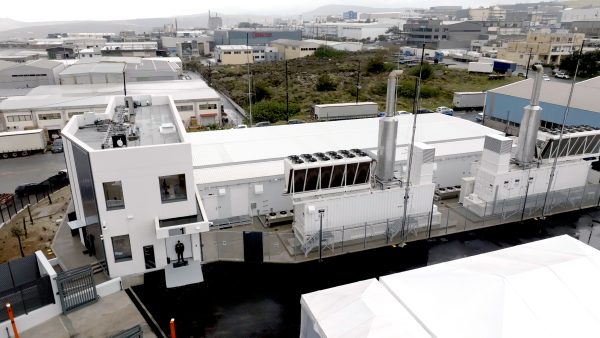
The Greek government is contemplating a financial support scheme to help heavy industry deal with energy costs next year.
The total cost of electricity for high voltage factories, according to competent sources, is estimated at 1.5 billion euros. A scenario which has been made for the provision of electricity supply contracts with prices at 300 euros per Megawatt hour.
In the first half of next year, the electricity supply contracts signed by PPC with the major electricity consumers before the energy crisis will gradually expire. The electricity prices agreed by the two sides, according to information, were at the level of 60 and 70 euros per Megawatt hour, while today the electricity prices are almost six times higher, at 400 euros per Megawatt hour.
Sources say discussions on new power supply contracts between the public utility and industries are ongoing. However, the above-mentioned cost of electricity for factories electrified by the high voltage is expected to be largely supported by the government through subsidies.
PPC
PPC, as noted to OT by sources, is already contributing with the loss of revenue from the ceiling that has been placed on electricity production since last July. It is estimated that the government will increase the subsidies for the next year and part of the cost will be borne by the industries.
The aforementioned solution seems to be the only way to maintain the competitiveness of the domestic industry.
An alternative solution for providing cheap electricity to energy-intensive industries is the conclusion of bilateral “green” power supply contracts (PPAs). It is a form of agreement by which power producers and suppliers ensure industries with green electricity at a low and stable price for many years. Electricity is produced by photovoltaic parks or even wind farms, which have very low costs.
However, according to the information, PPC is not in a position for the immediate period to conclude PPAs as it has a road ahead of it for the construction of photovoltaic parks that will have the possibility of providing electricity at a low cost.
Discussions
PPC and industrialists have been in discussions for weeks about the new landscape as it is formed by the end of their contractual relations in electricity supply. The common ground of both sides is that heavy industry will need state support, something that also happens in the other EU member states. Governments, one after the other, are proceeding with decisions to approve financial schemes to subsidize industries.
The Greek industry, in addition to the preferential prices it enjoyed until now with the contracts it had concluded with PPC, also benefited from financial support in the context of the monthly subsidy for electricity bills. However, the explosion of electricity prices to the levels of 400 euros per Megawatt hour and the uncertainty for 2023 caused by both the inability to predict the outcome of energy prices and the expiration of contracts with the public company lead the government to seek a package of subsidies. The purpose is to cover part of the cost of 1.5 billion euros that will lighten energy costs while keeping factories competitive in foreign markets.
Latest News

Greek €200M 10Y Bond to be Issued on April 16
The 3.875% fixed-interest-rate bond matures on March 12, 2029, and will be issued in dematerialized form. According to PDMA, the goal of the re-issuance is to meet investor demand and to enhance liquidity in the secondary bond market.

German Ambassador to Greece Talks Ukraine, Rise of Far Right & Tariffs at Delphi Economic Forum X
Commenting on the political developments in his country, the German Ambassador stressed that it was clear the rapid formation of a new government was imperative, as the expectations across Europe showed.

Athens to Return Confiscated License Plates Ahead of Easter Holiday
Cases involving court orders will also be excluded from this measure.

Servicers: How More Properties Could Enter the Greek Market
Buying or renting a home is out of reach for many in Greece. Servicers propose faster processes and incentives to boost property supply and ease the housing crisis.

Greek Easter 2025: Price Hikes on Lamb, Eggs & Sweets
According to the Greek Consumers’ Institute, hosting an Easter dinner for eight now costs approximately €361.95 — an increase of €11 compared to 2024.

FM Gerapetritis Calls for Unified EU Response to Global Crises at EU Council
"Europe is navigating through unprecedented crises — wars, humanitarian disasters, climate emergencies," he stated.

Holy Week Store Hours in Greece
Retail stores across Greece are now operating on extended holiday hours for Holy Week, following their Sunday opening on April 13. The move aims to accommodate consumers ahead of Easter, but merchants remain cautious amid sluggish market activity.

Green Getaway Ideas for Easter 2025 in Greece
Celebrate Easter 2025 in Greece the sustainable way with eco-farms, car-free islands, and family-friendly getaways rooted in nature and tradition.

Civil Protection Minister Details Summer Firefighting Plans at Delphi Forum
At the 10th Delphi Economic Forum, Minister of Climate Crisis and Civil Protection Yiannis Kefalogiannis discussed Greece's plans for the upcoming fire season.

How Shops and Markets Will Operate During Easter Holy Week
The Easter holiday schedule has been in effect since April 10, with retail stores open Palm Sunday, and most supermarkets also operating to meet consumer demand for Easter shopping









































 Αριθμός Πιστοποίησης
Αριθμός Πιστοποίησης